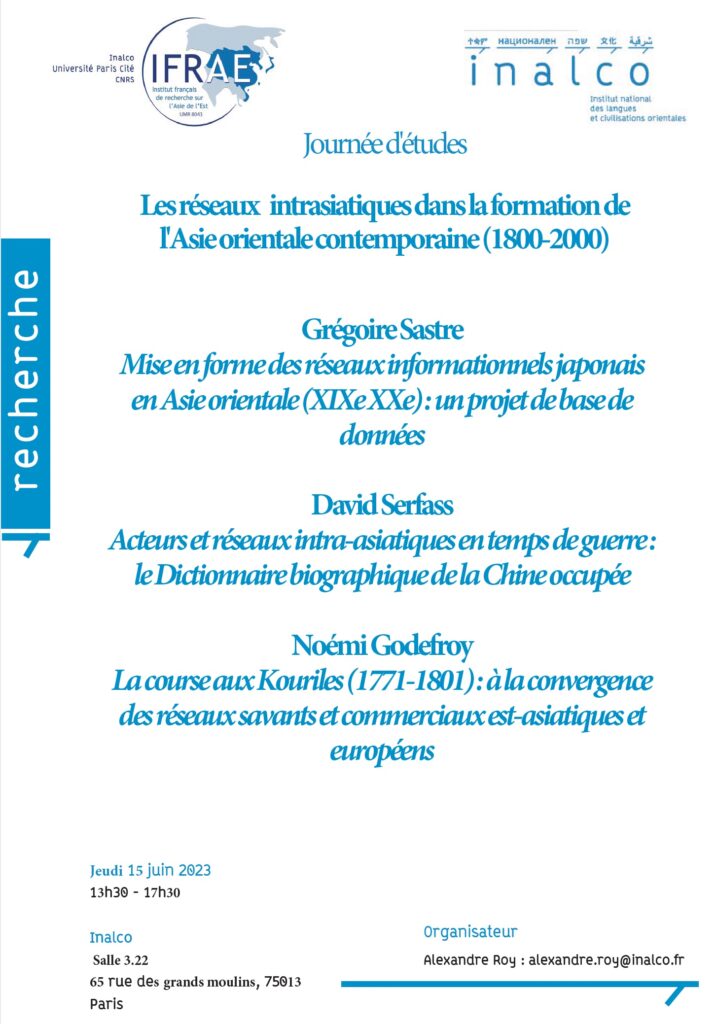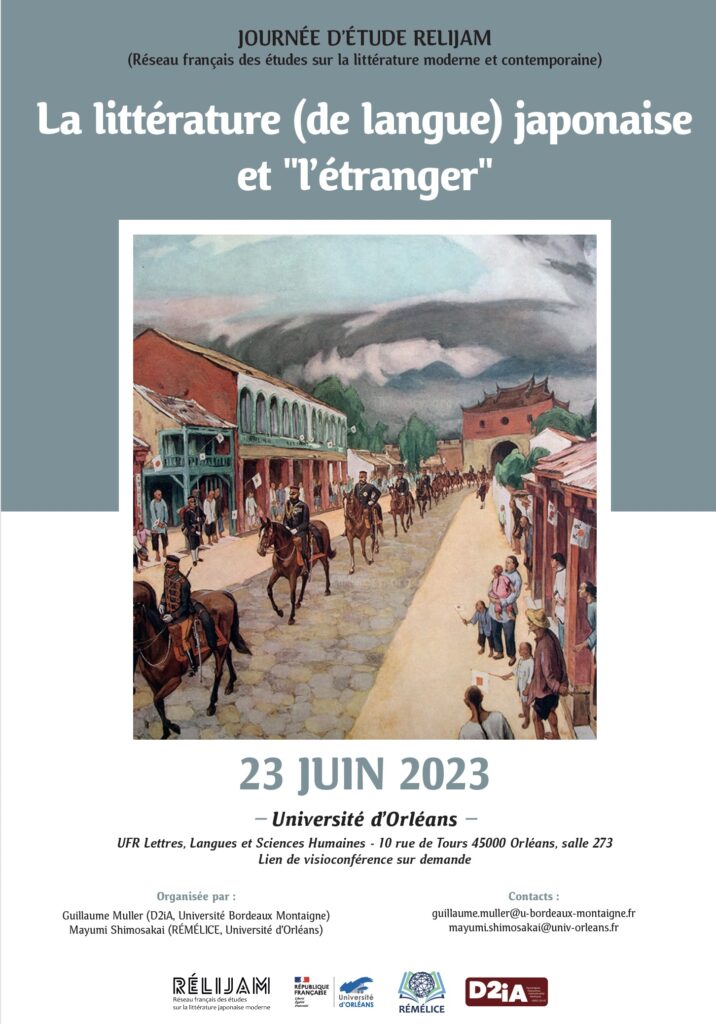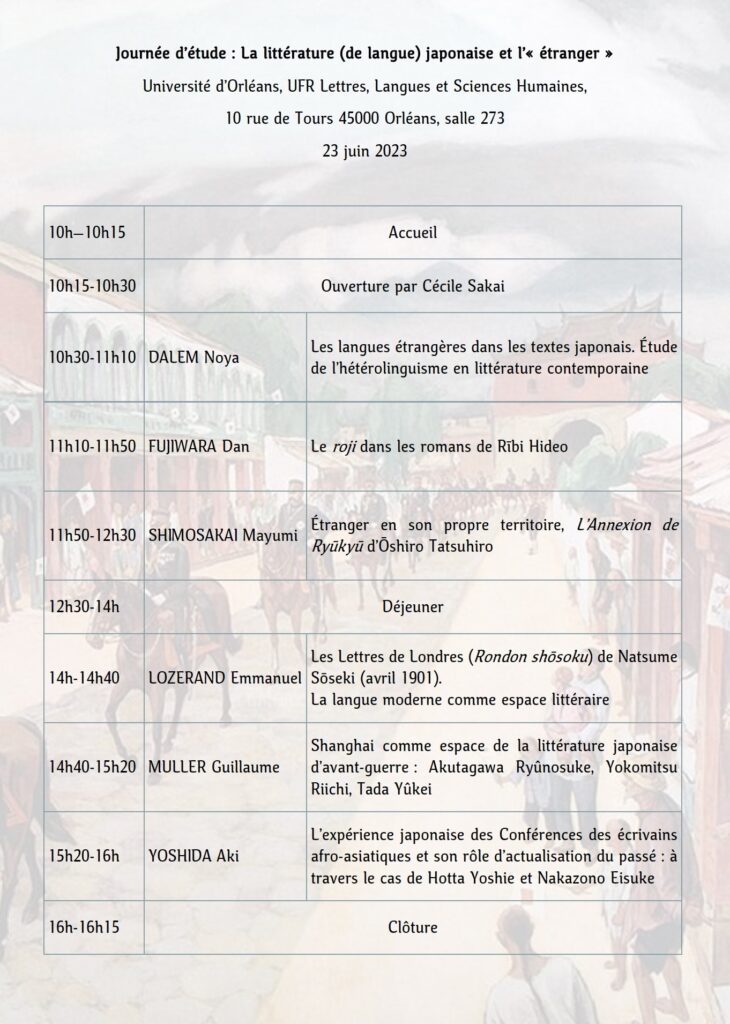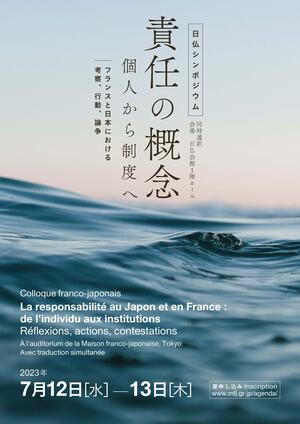第16回次世代グローバルワークショップ
The 16th Next-Generation Global Workshop
29th and 30th of September, 2023
Faculty of Letters, Kyoto University
Theme
Migration is a global phenomenon that has profound ramifications for individuals, families, and societies, influencing various aspects of quality of life. The era of COVID-19 was a sobering opportunity to reflect on the importance of mobility and speculate on what kind of socioeconomic, humanitarian and political impact the cessation of movement can have. This conference seeks to enhance our understanding of these diverse dynamics and explore migration in order to harness its potential for improving quality of life and fostering social prosperity.
We, therefore, invite original research papers, case studies, ethnographic writings and policy analyses addressing diverse dimensions of migration. Topics of interest include, but are not limited to:
1. Economic and Social Opportunities
2. Life of Migrants, Family and Community
3. Separation/Social Cost
4. Cultural Diversity/Transculturality
5. Democracy and Political System
6. Social Rights, Citizenship and Well-being
7. Education, Skills, and Human Capital Development
8. Welfare regime, Demographic Change
9. Forced Migration, Displacement and Refugee
10. Diaspora and Transnationalism
11. Environmental Sustainability
12. Migration Policies and Governance
13. Gender/LGBTQ+ and Sexuality
14. Expression of Literature, Art and Identity
15. History and Postcolonialism
16. Internal Migration
17. Social Media and Digital Technology
Please note that in the interest of ensuring opportunities for early career researchers to participate, we will accept as vast a range of topics as possible. We look forward to receiving your applications.
The Purposes of the Next-Generation Global Workshop
The Next-Generation Global Workshop (NGGW) has been held annually since 2008 to allow early-career scholars to present their research in English and obtain feedback from an international audience. It has proved to be a pleasant and effective opportunity for capacity building through mentorship provided by the professors of participating universities around the world. It has also served as an invaluable opportunity for participants to learn from each other and deepen their understanding of various social phenomena in the world, particularly in Asia. Ultimately, the NGGW has provided a forum for scholars of different generations and from various regions to build a common academic foundation by redefining Asia in a global context.
Application
Eligibility for application: Master’s students and Ph.D. students. The Organizing Committee will screen the applications based on candidates’ qualifications and abstracts.
Application URL: https://formok.com/f/7yws7ajk
Submission Guidelines:
• Applicants are requested to submit an abstract of their paper by the 1st of July (JST) via the application form.
• Abstracts must be concise, about 300 words, and include the title, author(s), affiliation, and contact information. (see the application form)
• Results of the selection will be notified by the 7th of July, and full papers will be due by the 15th of September.
• Each submission will undergo a blind selection process.
Important dates
• Abstract submission deadline: 24th of June 1st of July, 2023
• Notification of abstract acceptance and selection result: 30th of June 7th of July, 2023
• Travel support notification: 1st of August, 2023
• Full paper submission deadline: 15th of September, 2023
• Conference dates: 29th and 30th of September, 2023
Travel support
The organizer plans to provide accommodation at university dormitories for a limited number of participants. However, the details regarding the number of available slots are yet to be determined. Successful applicants will be contacted accordingly.
Past Archivements
Archivements
Contact
Organizing Committee of the 16th Next-Generation Global Workshop
Asato Wako (Director, KUASU), Stephane Heim, Björn-Ole Kamm, Steven Ivings, Zhang Zikang, Ji Chenjia, Xu Yao, Nozawa Yui
[Email]
kuasu.nextgeneration★bun.kyoto-u.ac.jp(★→@)




